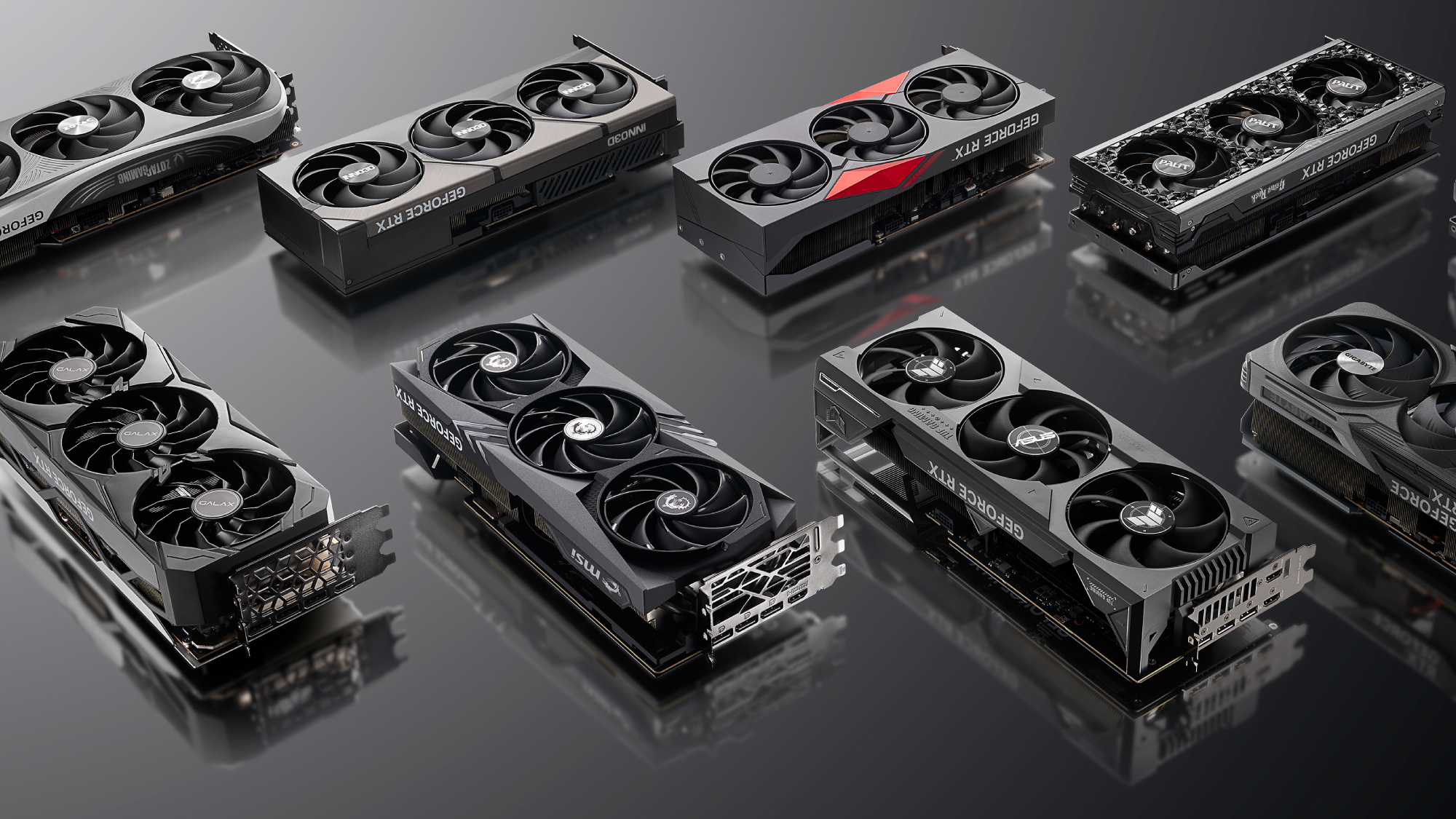
There's been real whiplash around whether or not Nvidia will release any new next-gen Blackwell (GeForce RTX 5000) graphics cards this year. The latest rumors suggest that we should meet the desktop GeForce RTX 5090 this year — and maybe more.
First seen on Notebookcheck, the YouTuber Moore's Law is Dead revealed that his sources claim Nvidia is hard at work on a new line of desktop and laptop GPUs that could launch as soon as Q4 of 2024. However, even those sources are unsure when each card will launch and whether some will be delayed into 2025.
In a video posted this week, Moore's Law claims that the RTX 5090 will be released in early Q4 of 2024, which suggests it could ship around October. However, one of his sources stated that the GeForce RTX 5000 laptop GPUs are "1-2 months behind" schedule, so we may not meet any of the laptop cards until 2025.
That's pretty believable, given that Nvidia has done similarly staggered rollouts of new GPUs in the past. If things play out the way Nvidia's launch of the GeForce RTX 4000 GPUs did, then we won't see the laptop variant of these rumored GeForce RTX 5000 graphics cards until March or April of 2025.
These GPUs could be announced at the annual Computex event, the giant computer expo held in Taipei, Taiwan. This year's iteration starts June 3. They could also deliver significant performance, as leakers are reporting that the high-end models of laptop and desktop GeForce RTX 5000 GPUs will come with GDDR7 memory and PCIe Gen 5 support. In layperson's terms, they could be meaningfully faster and more efficient than even the RTX 4000 series.
However, we've not heard any word on how Nvidia handles power consumption and thermals. The RTX 4000 chips are considered fairly power-efficient, and hopefully, the company can keep that up with these new GPUs.
Of course, there's also a chance the 5090 and 5080 chips will be delayed into 2025 because of Nvidia's big push into AI. The GPU maker has downplayed NPUs (Neural Processing Units like those found on Intel Meteor Lake and Apple M3 chips) and is working to make its GPUs capable of deeper AI learning. That AI focus could easily distract the company from racing to get its next-gen gaming GPUs into the world.







